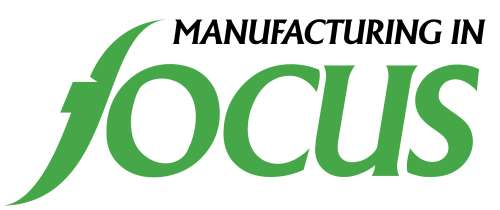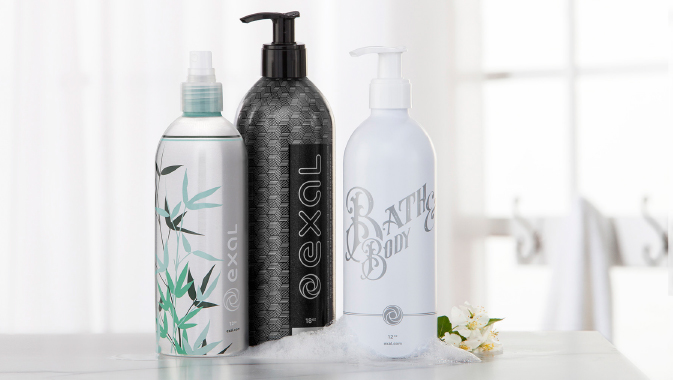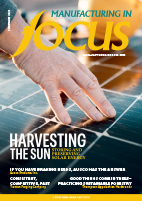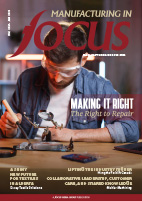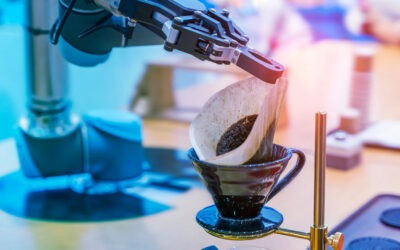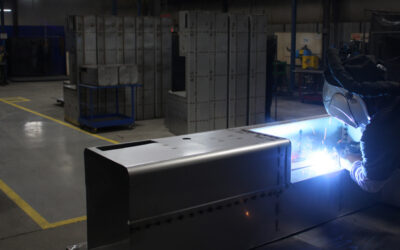Exal Corporation manufactures premium aluminum packaging for a variety of companies that offer packaged consumer goods. It produces innovative impact-extruded aluminum beverage bottles and aerosol containers for the personal care, home care, and pharmaceutical industries. The company can also assist its customers with design and branding to optimize sales. Headquartered in Youngstown, Ohio since 1993, the company has expanded to five facilities located in North and South America.
Over the past few years Exal has placed a significant emphasis on improving safety and quality metrics in its plants. As a result, Exal’s safety record and quality results have significantly improved. “We have continued to reduce our recordable incident rate. In 2015, it was 5.5. We got that down to 3.5 in 2016, lowered it to 2.8 in 2017, and last year, at its lowest, it was 1.8. We also finished 2018 with the lowest quality reject rate of parts per million (PPM) in our history, and have added capabilities and assets to help facilitate that further,” says Exal Chief Executive Officer Michael Mapes.
Exal has further developed its safety culture by executing a ‘near miss’ program that has led to heightened awareness at its plants and encouraged employees to discuss how to make the shop floor safer. A near miss is when an unplanned event has the potential to cause injury or damage, but it is avoided. Near misses can, however, be indicators of future incidents, and the point of reporting these is to decrease the chance of recurrence.
The company believes that implementing the program provided employees with numerous opportunities to engage in valuable discussions about safety. “The Exal family is paying attention to issues they see in their day-to-day, discussing them in town halls, and becoming more educated and aware of how we can improve practices and maintain stellar standards,” says Mapes.
Exal recently established a team assigned to research, development and innovation. The research and development (R&D) capabilities have always been present, but until recently, the innovators were scattered throughout the organization, and no group was specifically focused on proactively bringing new products and technology to the market, instead of waiting until something was requested by a customer.
“Another proud moment at Exal is implementing a structured and dedicated R&D and innovation team that can strategize proactively, instead of reactively, to bring new innovations to market,” says Mapes. The new team was created by identifying several people to study and analyze the inner workings of the market regarding trends and consumer preferences. The company uses its findings as a guide to its innovation efforts, with the end goal of helping its customers succeed in the market.
Earlier this year, this team completed a study on the consumer’s outlook towards sustainable packaging. There were three primary areas of focus in the study: the first was general consumer attitudes towards sustainability, the second was to understand consumer attitudes toward different materials and substrates, and the last was to understand the consumer’s willingness to pay for sustainability.
The first section gave positive results, as Exal confirmed that consumers do care about sustainability. Approximately sixty-two percent stated that environmentally friendly packaging is important to them. Somewhat surprisingly, the study found that number did not vary much across income, age, or location.
In the second area of focus, Exal was expecting that the consumer attitudes toward plastic would be negative, but it was not expecting it to be as resoundingly negative as it was. Consumers had a strong negative perception of plastic packaging for all products across the board, viewing plastic as more harmful, more wasteful and less recyclable than other materials.
The last finding was that consumers are in fact willing to put their money where their mouth is and pay extra for sustainable packaging. Roughly seventy percent of respondents are willing to pay some amount of money for more sustainable packaging. This number was higher than Exal anticipated, and most surprisingly, it did not vary between differing groups of people.
“We expected millennials and individuals with more disposable income to over-index on willingness to pay, but it really was an even figure. There isn’t much of a variance between different cohorts or different demographics,” says Exal Senior Director of Commercial – North America Ryan Noward.
In conjunction with the consumer viewpoints on plastic, the company is seeing more requests from brands with products in traditional plastic packaging. Brands that offer plastic water bottles are particularly interested, and Exal receives requests almost weekly from water companies looking to explore other alternatives. On the personal care side of the business, a lot of soap, skincare, and shampoo companies are reaching out as they look to provide a more sustainable package to their consumers. This is being driven by brands’ desire to provide their consumers a more sustainable alternative to plastic.
“At Exal, sustainability has always been really important to us, but I would say in the last couple of years it’s become an even greater point of emphasis, so we’ve instituted many things throughout our facility both big and small to become more sustainable as a company,” says Noward.
Exal has made some big changes, including lightweighting its portfolio of products to reduce the amount of material used. It has also made alterations on its shop floors by adding more recycling bins throughout the facilities, transitioning to LED lighting, and reducing the amount of water used in its waste streams. “Basically, everything we can think of to move the needle even a little bit, we’re implementing.”
This summer, Exal is working on a project with its vending partners to stop selling beverages in plastic bottles in its cafeterias, and within its own facility it ensures that its employees all use reusable or aluminum water bottles. It works to minimize its negative impact on the world because it understands the value in taking care of the environment and is aware of the importance of this to its customers, as well as its the end users.
Highlighted by its research, the main challenge is consumer education and low recycling rates. “Our study highlighted that around thirty percent of consumers don’t even associate recyclability with aluminum, which for us presents both a challenge and an opportunity to play a role in educating the consumer,” says Noward. “We need to make sure that consumers are aware of the types of packages that can be recycled and try to help close the loop to reduce our carbon footprint and environmental impact.”
Exal strongly encourages its customers to label products and packaging with the appropriate recyclable information to help drive the message to the consumer. Aluminum packaging can be infinitely recycled, which is an added incentive for consumers to avoid plastic products. “Plastic can only be recycled a few times before it loses its structural properties, while aluminum maintains its structural properties forever. A consumer equipped with this information is more likely to choose the product with the more eco-friendly aluminum packaging,” says Noward.
In January of this year, an exciting accomplishment at Exal headquarters was the newly installed Line 14. This is a packaging line with unique impact extrusion technology and advanced shaping capabilities that allows the company to form threads directly into the aluminum. The company also upgraded its manufacturing lines with advanced camera systems to ensure quality. “We have invested in advanced camera systems for quality inspection, updating our inside liner booths, and packaging machines for bundling, and adding lithography cameras for all lines at Exal headquarters in Youngstown,” says Mapes.
Its experienced engineers and graphics team assist its customers with the design and branding of their products. Design and branding trends have historically contained complicated graphics with bright, eye-catching colors. While there is still a large group of customers that use this type of packaging art, Exal has been seeing a trend with customers returning to simple art and graphics that mirror consumer demand for more simplistic ingredients and formulations. This development has led to simplistic artwork, bigger text, and straightforward, clean branding. “There’s still a place for the vibrant, colourful, and eye-catching, but we’re seeing a lot more of the clean, simplistic branding and graphics than we have historically. We expect this to continue in the near term as it matches growing consumer demand for more natural, clean products,” explains Noward.
As consumers increasingly expect more sustainable packaging, it is clear that aluminum is still the ultimate material for a wide variety of products, and its use will continue to drive growth in the CPG and beverage industries. There is a growing demand for premium, sustainable and convenient packaging across product categories. Delivering on those needs along with a high standard of workplace safety will remain priorities at Exal as it provides its customers and consumers with new ideas, technology, and products.
“We know how important sustainability is to our own families, our customers, and consumers, and we will continue to look for ways to provide sustainable solutions for new markets, whether that’s bath and body, skincare, or otherwise and do our part to make packaging more environmentally-friendly,” says Mapes.
